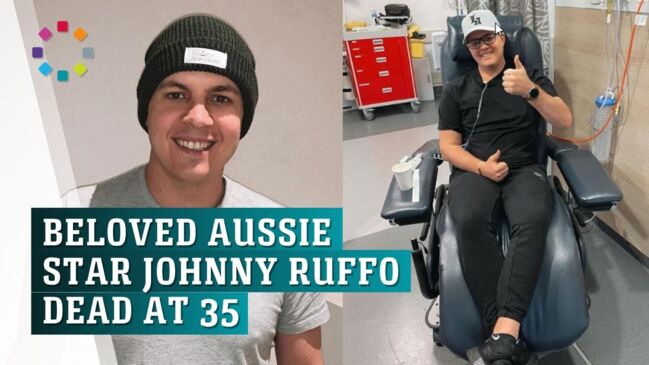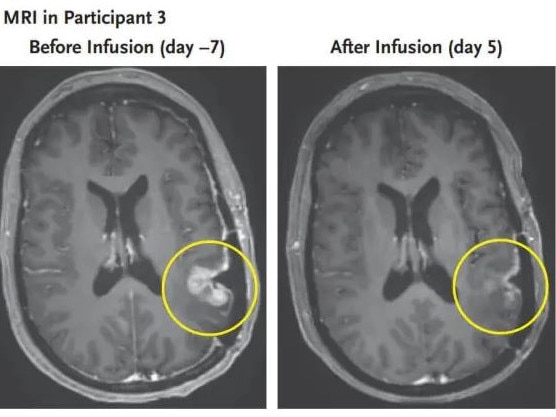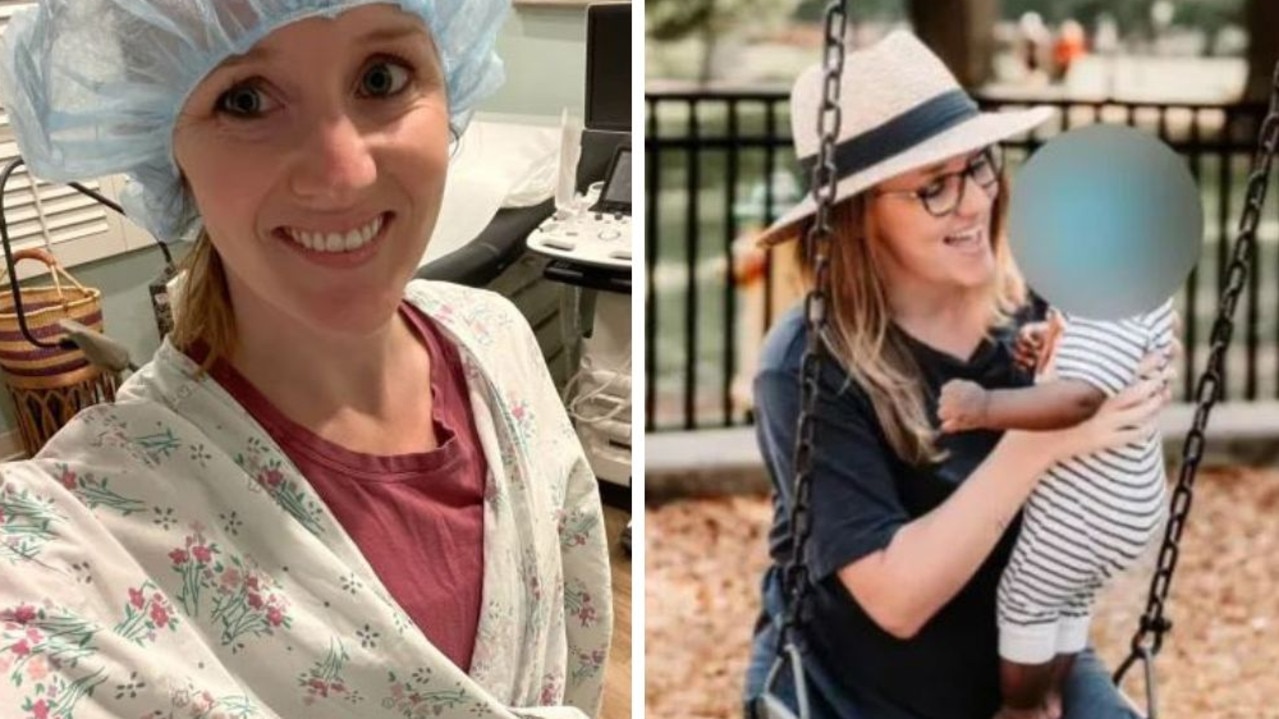Scans show woman’s brain tumour almost completely disappear after ‘wonder’ treatment
A woman’s brain tumour nearly completely regressed in less than a week thanks to a “revolutionary” new treatment praised by researchers.

Illness
Don't miss out on the headlines from Illness. Followed categories will be added to My News.
A woman’s brain tumour nearly completely regressed in less than a week thanks to a “revolutionary” new treatment praised by researchers.
The 57-year-old saw her cancer almost disappear in just five days after undergoing CAR-T therapy – a treatment that bolsters the body’s own immune system, The Sun reports.
She was one of three glioblastoma patients enrolled in the study from March to July last year. All saw incredible responses.
“We report a dramatic and rapid response in these three patients,” Dr Elizabeth Gerstner, of Massachusetts General Hospital, said.
“Our work to date shows signs that we are making progress, but there is more to do.”

Glioblastomas are very aggressive brain tumours that affect around 3200 Brits a year – according to Cancer Australia, an estimated 1924 people were diagnosed with some form of brain cancer in 2023.
The main treatments currently available are surgery, radiotherapy and chemotherapy.
The new study, published in the New England Journal of Medicine, looked at how well CAR-T therapy works at treating the disease.
The therapy is usually to treat certain blood cancers and trains the body’s immune system to recognise and attack cancer cells.
The woman saw “near-complete tumour regression” after just five days, the researchers said.
The other two patients also saw their tumours decrease in size.
A 72-year-old man’s tumour shrank by more than 18 per cent after two days.
By day 69, the tumour had decreased by 60.7 per cent, and the response was sustained for over six months.
“These results are exciting, but they are also just the beginning – they tell us that we are on the right track in pursuing a therapy that has the potential to change the outlook for this intractable disease,” Dr Marcela Maus, also of Mass General, said.
“We haven’t cured patients yet, but that is our audacious goal.”

“This is a story of bench-to-bedside therapy, with a novel cell therapy designed in the laboratories of Massachusetts General Hospital and translated for patient use within five years, to meet an urgent need,” Dr Bryan Choi, of Mass General, said.
“The CAR-T platform has revolutionised how we think about treating patients with cancer, but solid tumours like glioblastoma have remained challenging to treat because not all cancer cells are exactly alike and cells within the tumour vary.
“Our approach combines two forms of therapy, allowing us to treat glioblastoma in a broader, potentially more effective way.”
This article originally appeared on The Sun and was reproduced with permission
Originally published as Scans show woman’s brain tumour almost completely disappear after ‘wonder’ treatment




